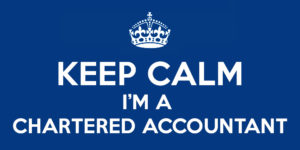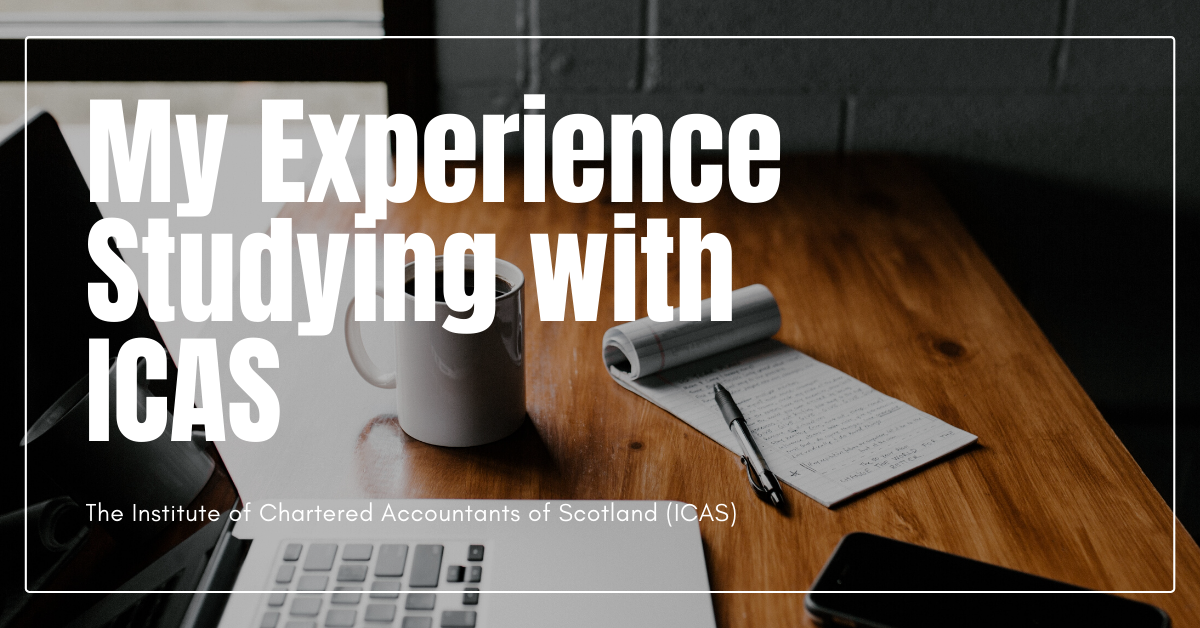Do I Need a Job to Qualify as a Chartered Accountant?
To cut a long story short, technically not. However, it is very dependent upon your current situation.
For example, some accounting qualifications will allow you to do the studying yourself without the need for a job, while others will require you to effectively be ‘sponsored’ by a company during your exam process.
However, in order to become a fully qualified chartered accountant, you will more than likely still require three years of work experience in a practice. For me, that was three years of experience at a Big 4 firm doing Audit, while I studied my ICAS exams. More on that later!
So, to summarize, you don’t need a job to study to become a Chartered Accountant, but you do need the job in order to full qualify.
Do I Need a Degree in Accounting (or Finance Related Degree)?
No, in fact some of my most successful colleagues didn’t study anything even remotely related to Accounting.
I was a part of the student hire process at my firm, so would interview people from all sorts of backgrounds. The degree they did at University/College had absolutely no bearing on if we would hire them.
It does help to some extent during your time studying, and can provide some very relieving exemptions to some of your exams though. I absolutely detested Business Law while at University, so when it came to studying Business Law with ICAS, I took full advantage of my available exemption.
How Do I Get a Job in Accounting?
This will depend on your current circumstance. Mostly your location, as well as who you know.
If, for example, you would like to train to be an Accountant while working in London, then you will have a harder task finding a job than if you were looking for a job in a smaller office location.
If you want to get a job at a Big 4 accounting firm relatively easily, my recommendation would be to look at the off-shore jurisdictions. This will allow you to get off-shore finance experience, and it will also get you through the door of a prestigious Big 4 firm without hundreds, if not thousands of people competing for a job like would be the case in London.
If however, you don’t want to move away, then the best bet is to look for the best ways to apply for the firm you want to join. If there isn’t anything obvious, then try adding someone from that firm on LinkedIn and asking them. Quite often employees at these firms will receive a referral bonus if they get you through the door, so they’re more than happy to help you out! They may even slip you some pointers for your interview.
Networking
Networking is key to landing the job you want. As previously mentioned, LinkedIn is a fantastic resource for people. It will allow you to search for people who work at specific firms in your area and message them questions. This is how I have done a lot of the networking which has benefited my career.
Make sure you also get some business cards made, and actively attend events in the area you wish to land a job. You never know when you might meet someone who could be the key individual to get you through the door at a company.

Audit? Tax? Or Other? What Area of Accounting Should I Pursue?
To answer this, you really need to know what you want to do with your future. If you want to specialize in tax, perhaps open your own firm, then you obviously should try and get a job in tax.
If you have absolutely no idea what you want to do, but you know you want to get into the finance industry, then my recommendation would be to get a job in Audit. While it isn’t the most interesting option, it will give you a broad range of experience across many types of companies. In my first year in Audit I got to experience banks, funds and non-financial services companies. It also allows you to delve quite deeply into a business and gain an understanding of the underpinnings of a company.
There is the option to get into advisory, which is probably the ‘best’ option of the three overall in my opinion. This also provides a lot of opportunities for when you want to leave your training firm and go into industry.
What Qualification Options Do I Have In the UK?
ICAEW – ICAEW Website
The Institute of Chartered Accountants of England and Wales. Probably the most well-known Accountancy Qualification in the UK. Your letter designation once qualified will be “ACA”. I don’t know a whole lot about the ins and outs of studying for ICAEW, other than that it is generally viewed as the ‘top’ qualification alongside ICAS within the UK.
ACCA – Website
Association of Chartered Certified Accountants. This was generally viewed as a slightly easier option at my firm, and is what was offered to school leavers, or individuals who were unsuccessful with ICAS. The layout of it is a bit more relaxed compared to ICAS, where you will partake in evening classes and study while you’re also working. The exams are far more spread out, as opposed to block booked exams. This means there is a bit less pressure to remember huge amounts of information and sit 5 exams all in one week.
This is generally firm dependant, and there is a lot more freedom with when you can sit you exams with ACCA. Comparatively, ICAS and ICAEW are very prescriptive with when you sit the exams, and when you study. There is very little room for movement, if any.
If you become qualified with ACCA, your designation will be “ACCA” after your name.
ICAS – ICAS Website
Institute of Chartered Accountants of Scotland. This is the qualification I studied for. You don’t need to be in Scotland to study for it, despite the name. In fact, ICAS are the original and first Accounting Qualifying body. There is an element of relying upon this history in order to add some superiority to the qualification.
ICAS is hard, there’s no getting around that. You will start off by being handed five folders each about 5 to 6 inches thick filled to the brim with notes you need to learn in the space of about 8 weeks. It is intense. There’s a lot to learn, and ICAS don’t make it easy for you. However, because it is so difficult, it is generally viewed as a pretty top-level accounting qualification.
If you study and qualify with ICAS, your designation will be “CA”.
Do You Regret Becoming an Accountant?
Yes and no, depending on what point in my career you asked me.
I went through a period as I was approaching my final exams where I really wanted to get involved with the investment side of finance, and part of me felt I had wasted my three years in accounting, and should have started off with CISI or the CFA.
However, saying that, I will now always be a Chartered Accountant. It will always be a fantastic foundation for my career, and will benefit me throughout. I now have a significant advantage over others when it comes to the analysis of financial statements, and understanding the financial underpinnings of a business. Even in the Investment World, this will always hold a benefit.
There is never a time where being a qualified Accountant will not be valuable.
Will I Earn Lots of Money as an Accountant?
Not initially, but you have the potential to really earn a significant amount of money.
Trainee Accountants aren’t paid much, and they work a lot of hours. My starting salary was around £25,000 and grew up to £40,000 approximately when I qualified. This isn’t anything special in the finance world, and to be honest, if you stick with a Big 4 firm, you’re unlikely to earn that much until you reach Partner level (which can be a long grueling road depending on your office!)
Should I Join a Big 4 Firm to become a Chartered Accountant?
There is significant benefit to your career by being a Big 4 trained CA, there’s no doubt about that. It will be a gold ‘stamp’ on your CV when you eventually look to leave the firm.
It isn’t the end of the world if you cannot get a spot at a Big 4 firm, and there are plenty of fantastic CA’s and incredibly successful people who have entered the world of finance as an Accountant outside the Big 4. Some would argue the job is far more enjoyable if you experience your qualification years outside the Big 4 to be honest.
The Best Way to Become a Qualified Chartered Accountant (CA)
I will try to consistently keep this post updated with information on a regular basis, and will try and create some more in-depth subtopics which people might find helpful over time.
Hopefully the information I have provided will allow people to decide whether or not a career in accountancy is for them, and whether or not they want to become a Chartered Accountant.
This isn’t so much a guide to becoming a Chartered Accountant, but I’m hoping it has answered the majority of the questions you may have had. If there’s anything I haven’t answered, then please feel free to add it to the comments below, and I will expand on it here!






Hi! I’m a Swedish Single Mom living in Austin, I found your article to be soooo Usefull!
You’re welcome Janessa 🙂 Always happy to help